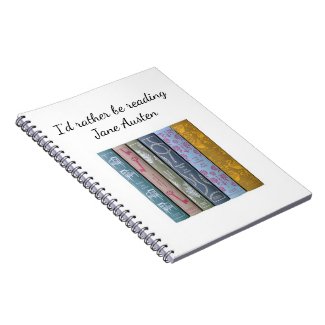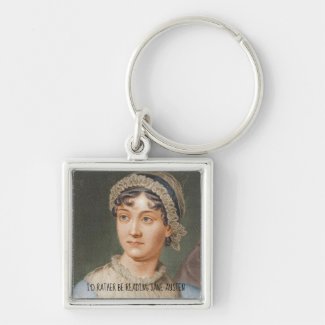With Juneteenth just two days away, I thought it a good time to mention something many people miss in Emma -- an allusion to slavery that was still in practice at the time.
In Emma, Jane Austen created a perfect little village where the worst people achieve no more than mean girl tricks and putdowns. The Eltons feel superior when putting down Harriet Smith, and Emma proves her worth by feeling bad about her witticism at Miss Bates' expense. While a threateningly powerful figure looms large in the novel -- Mrs. Churchill -- she remains off-stage, where she also conveniently died.
Outside polite society
One thing that is even further off-stage in the novel is slavery, both the kind that was illegal in England and the kind that was legal with low wages thrown in.
Mansfield Park is the novel that critics have identified as linked to slavery because the master of the estate in the title relies on income generated by
slave labor in Antigua and leaves his home for an extended time to tend to his plantations.
But it is in Emma that it comes up more explicitly to illustrate a character's proof grasp on imagery. This happens in chapter 17 when Mrs. Elton insists on pushing Jane into a governess position sooner rather than later. (Note how close to Dickensian Austen gets in naming the person referred to Suckling.) Jane tries to politely decline Mrs. Elton's interference and tells her:
"When I am quite determined as to the time, I am not at all afraid of being long unemployed. There are places in town, offices, where inquiry would soon produce something—Offices for the sale—not quite of human flesh—but of human intellect.”
Mrs. Elton mistake of Jane Fairfax's meaning, as is clear from her response:
“Oh! my dear, human flesh! You quite shock me; if you mean a fling at the slave-trade, I assure you Mr. Suckling was always rather a friend to the abolition.”
“I did not mean, I was not thinking of the slave-trade,” replied Jane; “governess-trade, I assure you, was all that I had in view; widely different certainly as to the guilt of those who carry it on; but as to the greater misery of the victims, I do not know where it lies. But I only mean to say that there are advertising offices, and that by applying to them I should have no doubt of very soon meeting with something that would do.”
Mrs. Elton only hears of slavery and immediately makes a point of establishing the family she had in mind as allied with the abolitionist movement. However, what Jane was thinking about was what in Marxist terms would be called "wage-slavery."
A governess would not be working for free, though she'd be working for very little. The main thing, though is that she'd have a master/mistress who is in control of her time.
Like a servant, the governess has to live with the household and move with them or stay behind as they bid. Unlike the other servants, though, she is hired for what we would call white-collar (or perhaps pink-collar) work rather than manual labor. As a result, the governess is neither fish nor fowl as she occupies a shadowy space between the gentry who employ her and the rest of the staff.
This is the uncomfortable position that Jane Fairfax is loath to accept. She is, at this point, secretly engaged to Frank Churchill and so can become a gentleman's wife instead of a paid laborer, so long as the timing works out (which it does, as this is a novel with a happy ending for all).
From Jane Fairfax to Jane Eyre
It's clear that Charlotte Bronte read Jane Austen. After all, George Lewes was constantly advising her to follow in her literary footsteps. Bronte had her own ideas, however. She declared, "I should hardly like to live with her ladies and gentlemen in their elegant but confined houses" yet one wonders if she somehow absorbed the character of Jane Fairfax and gave her first name to her most famous heroine -- Jane Eyre -- and her last name to the housekeeper at Thornton Hall.
I will have to restrain myself back from going on about Jane Eyre whose book makes up a whole chapter in my dissertation. Feel free to
download it and read at your leisure. Like Jane Fairfax, Jane Eyre was born into the gentry class but was orphaned and impoverished and then sent to live with a wealthier family. From that point, though, their histories diverge.
Fairfax got on very well with the rich daughter of the house and remained her companion until she married. In contrast, Eyre, was bullied and even abused by her rich relatives and sent away to a charity school that also abused her. Coming out of that, a governess position was a step up,
and still got her happily ever after.
But for Fairfax, who had already met the man she loves and was just waiting to become Mrs. Churchill once the tyrannical woman who currently holds the title dies, a governess position was a serious step down. That is why she only accepts the position after a fallout with Churchill and is quite happy to let it go. She has no need to reach financial independence to feel equal to him.
But Bronte's heroine takes pride in holding her position. She admits to being subject to the master's orders because he pays her but still insists that they are equals. Bronte saw dignity in a woman using her education for her work, and that is something that informs her heroine's character and her deciding that a woman like that -- rather than the beautiful and rich Emma -- deserves to tell her own story.






No comments:
Post a Comment